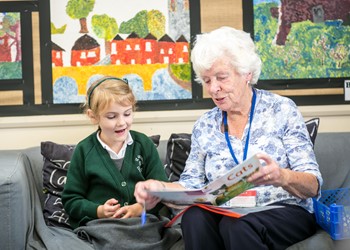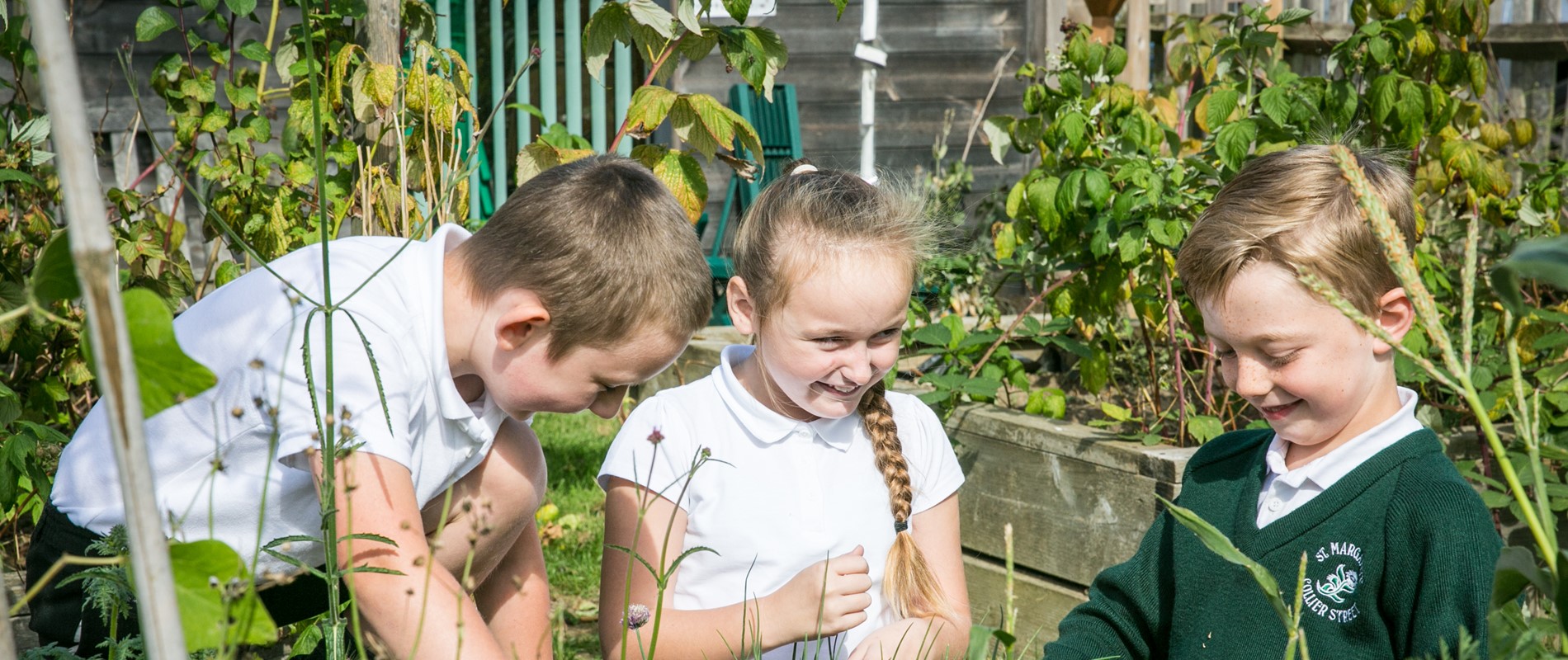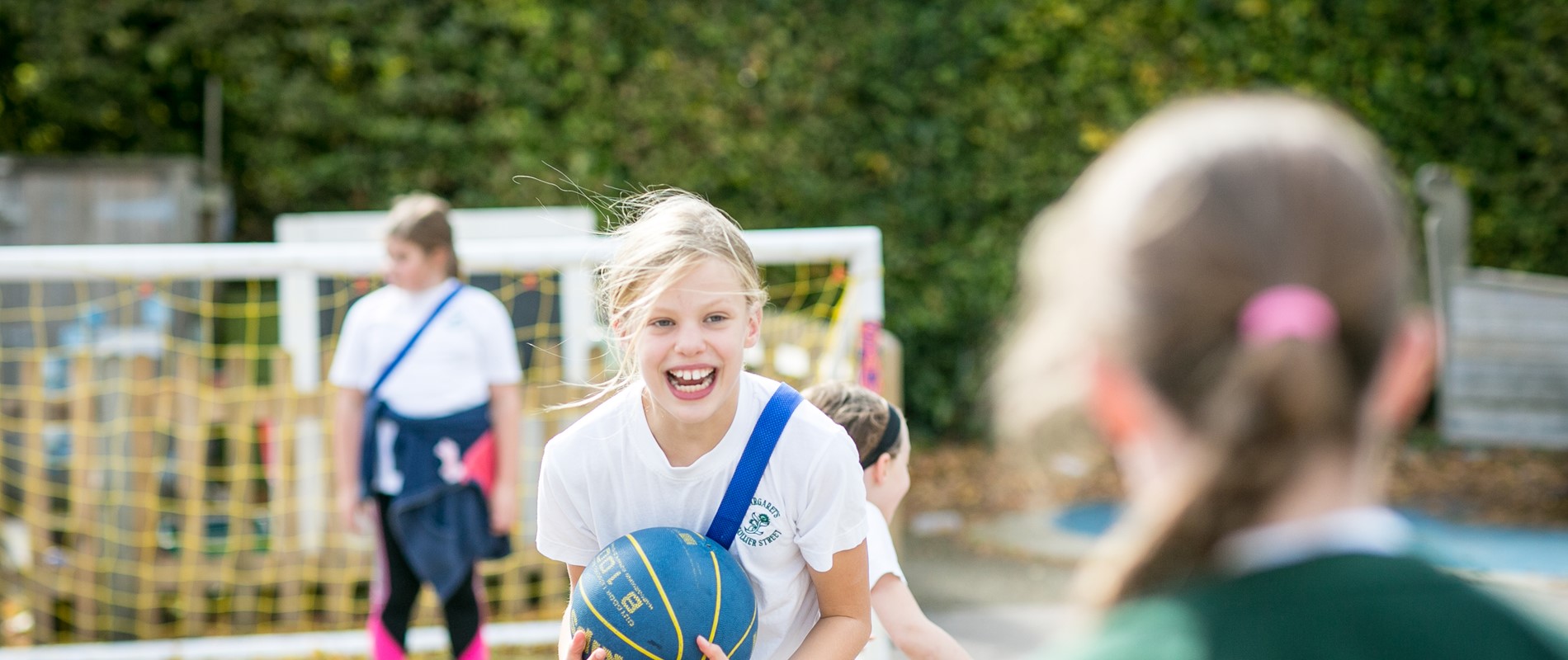English

Reading
Children are taught to read independently using the phonics programme detailed below, and by stimulating their interest in making meaning of words and texts around them. They are introduced to a wide range of attractive and stimulating books in class book corners and the school library. Enthusiasm for books and reading is modelled and promoted by class teachers.
Younger children read regularly in school to adults (including parent helpers) both individually and in reading groups. Older children independently choose texts from their class selection and are also challenged to read a book more critically in guided reading groups.
All children are required to read every day at home, and parental support for this is essential. Please ask your child’s class teacher if you need further information about ways to develop your child’s reading at home.
Phonics
Writing
Children are encouraged to write for many different purposes and audiences. They regularly compose stories, poems and descriptive passages, write letters, invitations and reports. The conventions of spelling, punctuation and grammar are taught systematically through their written work. The quality of writing is monitored in all subjects not just English. Written work is revised and redrafted, paying attention to meaning and clarity. Well-presented work is expected using a cursive style of handwriting. Children have opportunities within school to discuss debate and relate events in order to become confident speakers and listeners








